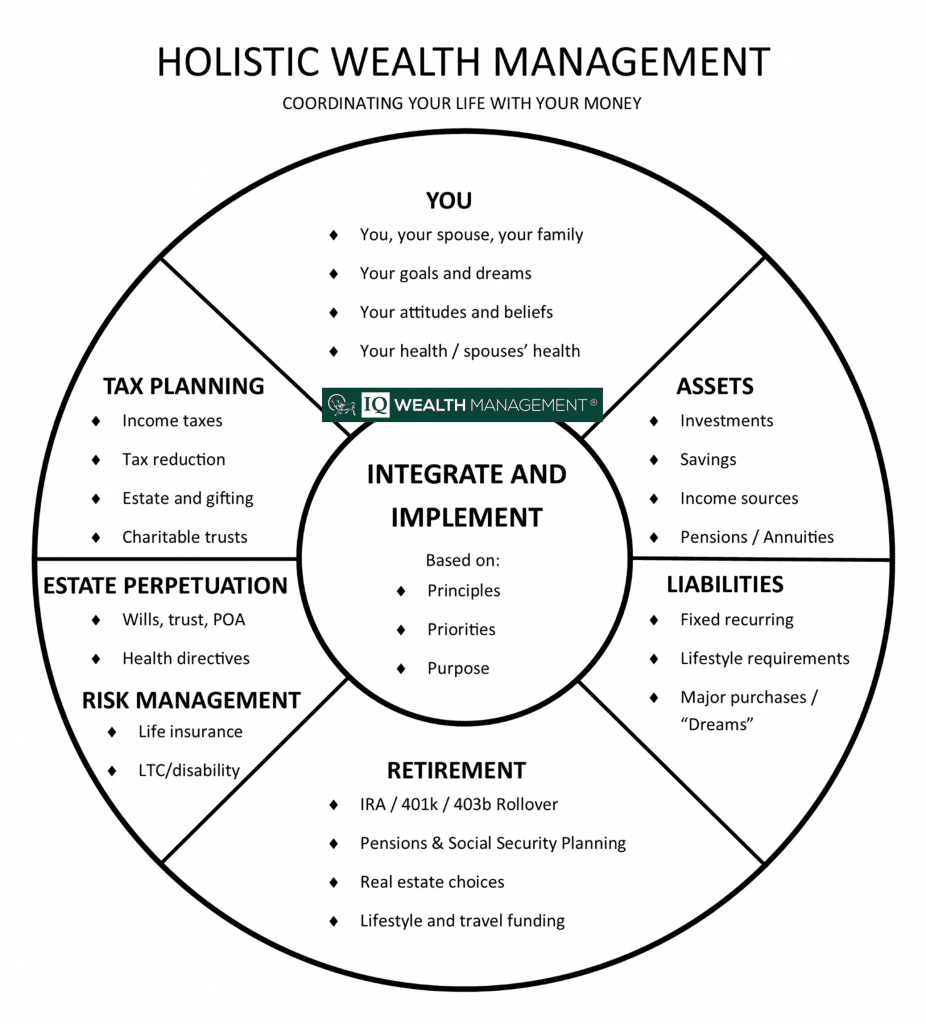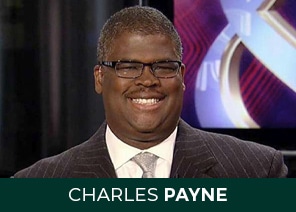Realities of A Biden Presidency
One of the most impactful–but least discussed parts– of the recently released Biden tax plan is the elimination of the step-up-in-basis upon death. Many American families have enjoyed the ability to pass on appreciated assets like the family home, real estate, and stocks held at brokerages to the next generation without tax and with what is known as a step up in basis.
This means that if you bought a property for a hundred thousand dollars thirty years ago and it has appreciated to a million dollars today, and you pass away tomorrow, under current tax laws you can pass your home on to your kids with zero capital gains tax.

In simple terms, it means your kids’ new tax basis will be a million dollars. The same would be true with a million dollar stock portfolio that you started thirty years ago with a few hundred thousand dollars. Your kids would enjoy a step up in basis, with no capital gains tax to pay. Biden’s plan would eliminate that privilege and would eliminate lower taxes on capital gains—making all gains taxable at the ordinary income rate.
This is only one aspect of the Biden Tax Plan. The well known Tax Foundation has performed a non-partisan, in-depth accounting of the plan on its website. Let’s review several of the highlights.
There are two methods for calculating the economic impact of tax proposals
First, an important note on the methods used by the Tax Foundation. They are very aware that some tax policies will grow the overall economy and potentially GROW wages and the economy. Typically, these types of tax policies tend to bring in more tax revenues over time because the tax policy tends to create more job opportunities. When this occurs, there are simply MORE taxpayers paying taxes. Other policies will serve to SHRINK the economy and potentially shrink wages.

Joe Biden’s policies appear to be very detrimental to job creation in short run, i.e. three to seven years. After that, it is very unclear.
To account for this factor, the Tax Foundation uses their “General Equilibrium Tax Model” as a mathematical method to estimate the actual IMPACT of tax policies. In other words, “what will each new tax or tax cut DO to slow or grow the economy?” If you want to be accurate in your forecast, this is critical information to be working from. The Foundation’s model can produce what they refer to as “conventional” and “dynamic” revenue estimates of tax policy.
Conventional estimates hold the size of the economy constant –like a pie-chart frozen in time –with no changes, and attempt to estimate potential behavioral effects of a certain tax policy.

Dynamic revenue estimates, on the other hand, DO consider both behavioral and overall economic effects of tax policy on revenue. Obviously, the Dynamic Model takes much more work on their part, and is quite intricate, but it gives a clearer picture about the net amount of revenues the government will actually collect and the effect on wage earners and entrepreneurs.
The Dynamic model can also produce estimates of how policies may impact measures of economic performance such as GDP, wages, employment, investment by individuals and corporations (which of course LEADS to more employment and consumption), and the trade deficit.
On the chopping block under Joe Biden: step-up in basis, favorable capital gains rates
The Foundation states that modeling the repeal of step-up in basis on capital gains tax in Biden’s plan would lead to substantial capital gains taxes at death, and it would mean that death would be treated as a documented “realization event” for capital gains. Imagine all of your lifetime capital gains on real estate and stocks being TAXED in one fell swoop, on your passing!
Taking aim at anyone making over $400,000 annually
Because most people don’t $400,000 a year or more, Democrats know that it could be politically popular to put a bull’s eye target on these people. After all, what right do they have to make that kind of money? As Mr. Obama pointed out, “They didn’t build that.” But politics should not enter into a fragile economy when our national debt is careening toward $30 Trillion.

What those who make less often fail to understand is that much of the everyday conveniences, like HAVING A JOB, relies on the people making $400,000 to a few million a year.
What hasn’t yet been made clear—and of course Biden won’t answer any questions to any live human beings—is whether a WEALTH TAX will be made part of the plan. A wealth tax is an annual tax on the net wealth a person HOLDS, not what they MAKE. So, the Wealth Tax would tax a person’s net worth–their assets minus their debts. It would be ON TOP of the tax you pay on the income you bring in each year.
Joe Biden is leaning on Elizabeth Warren for financial advice. She is a huge advocate of the Wealth Tax
As NPR says on its website, quote: “On the one hand, you can think of the Wealth Tax as something like the property taxes people pay on their homes, but applied to all their wealth above a certain level.” Usually, property tax is the local level. Joe Biden wants to make it federal. Elizabeth Warren has been mentioned as his probable Treasury Secretary (heading the IRS) or head of the Federal Reserve.
Mr. Biden guaranteeing to raise taxes on U.S. corporations. Will they exit the USA like they did before?
The Biden Tax plan would not only Increase the corporate income tax rate from 21 percent to 28 percent, it creates a minimum tax on corporations with book profits of $100 million or higher. The minimum tax is structured as an alternative minimum tax—corporations will pay the greater of their regular corporate income tax or the 15 percent minimum tax. This will snare companies like Amazon that pay no tax, but will put companies on the edge of bankruptcy in a very bad place.
While Biden voters may cheer a rise in taxes on job-creating corporations, they really should be careful what they wish for. Corporations are seen as “evil” and “nasty” by the dim-witted ladies on The View. However, these “nasty” entities create good paying jobs for nearly a hundred million Americans, who all pay taxes and who all pay into the Social Security system. If you want to see a long lasting recession, and jobs headed back to China, raise taxes on the employers.
Raising taxes on corporations simply raises their overall expenses and reduces their net profitability. When their net profits shrink, they are forced to raise prices on goods and services, lay off people, and stop investing in their own businesses.
SUMMARY
According to the Tax Foundation General Equilibrium Model, Biden’s tax plan would reduce the economy’s size by 1.51 percent in the long run. The plan would shrink the capital stock by 3.23 percent and reduce the overall wage rate by 0.98 percent, leading to 585,000 fewer full-time equivalent jobs.
According to the Tax Foundation General Equilibrium Model, Biden’s tax plan would reduce the economy’s size by 1.51 percent in the long run. The plan would shrink the capital stock by 3.23 percent and reduce the overall wage rate by 0.98 percent, leading to 585,000 fewer full-time equivalent jobs. This could be very detrimental to the stock market and the millions of 401(k)s in existence.

On a conventional basis, taxpayers in the top 1 percent would see their after-tax incomes reduced by around thirteen percent due to higher taxes on income above $400,000.
However, taxpayers in other income quintiles would also see a reduction in their after-tax income. The reduction in income for the bottom four income quintiles is mainly due to the increased tax burden on labor from higher corporate income taxes. In other words, corporations may not just be forced to lay off people, they would likely need to cut wages across the board.
When you reduce income by thirteen percent and start taxing capital gains, don’t expect the stock and real estate markets to respond favorably. I recommend having both a “Biden portfolio” and a “Trump portfolio” in place, with plenty of emphasis on safe, secure income that won’t get blown away in a storm.
Steve Jurich is an Accredited Investment Fiduciary®, a Kiplinger® Contributor, and radio host of MASTERING MONEY on Money Radio in Phoenix. No specific tax advice is being offered or given. Always seek tax advice from a qualified tax professional. Sources for this post include the Tax Foundation and Investopedia.











